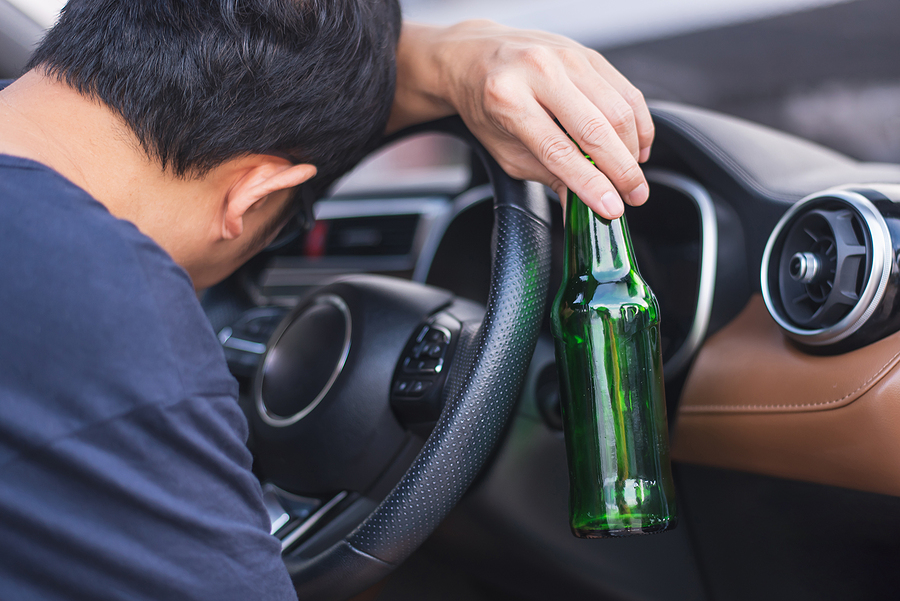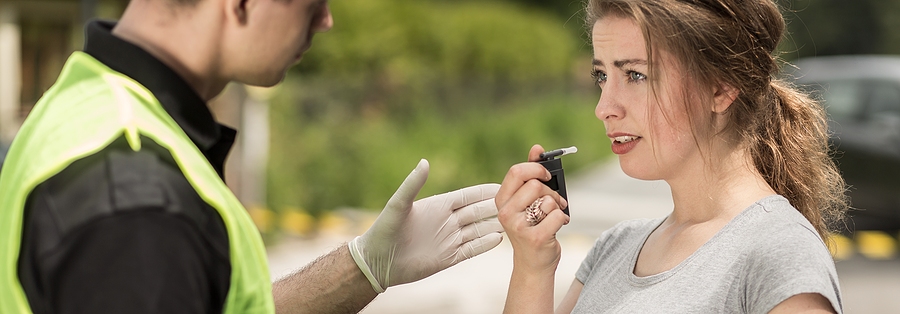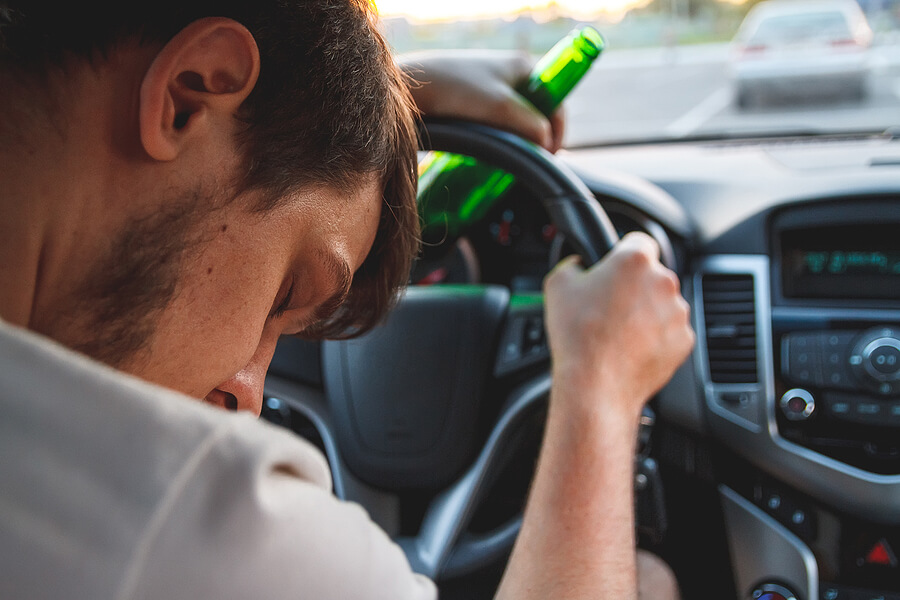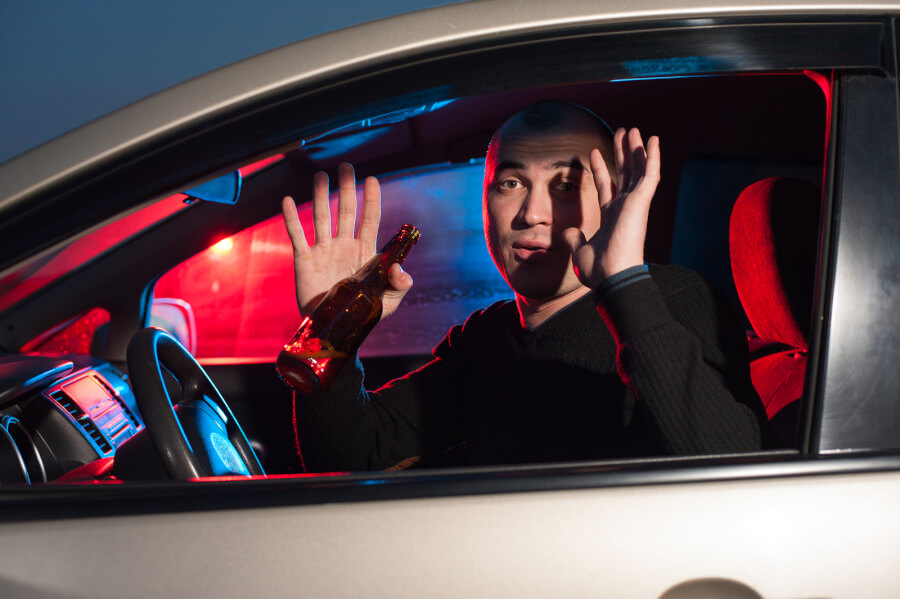Driving while intoxicated, a DWI, is a serious offense that can result in legal consequences that can have a long-lasting impact on your life. North Carolina’s DWI laws are, like other states, fairly unforgiving. A conviction of a DWI here can lead to jail time, large fines and even a loss of your license. That’s why if you’ve been charged with a DWI, you need a skilled DWI lawyer in Raleigh who will aggressively defend you.
A skilled attorney can defend you, protect your rights, and mitigate the potential consequences of a conviction. With a little luck, charges will be dropped and no prosecution will even occur.
DWI Blood Alcohol Limits in North Carolina
 The North Carolina Department of Public Safety outlines what constitutes a DWI.
The North Carolina Department of Public Safety outlines what constitutes a DWI.
According to the statutes, it is illegal to drive while noticeably impaired or with a blood alcohol concentration of 0.08. For commercial vehicles, this limit is 0.04. It is important to know that you do not have to have a BAC above a certain limit to be convicted of a DWI, as the law notes that anyone who is “noticeably impaired” can be convicted.
North Carolina DWI laws are strict regarding underage drivers as well. Individuals under the age of 21 with a blood alcohol concentration of .01% or more are subject to arrest and DWI charges. Driving under the influence of drugs or alcohol under the age of 21 can result in license revocation and mandatory substance abuse treatment.
Penalties for DWI Convictions in North Carolina
If convicted of DWI, drivers may face a range of penalties, including fines, license suspension or revocation, community service, and jail time. Even first-time DWI offenders in North Carolina face a range of potential penalties, including the suspension of their driver’s license, community service, probation, and even jail time. Penalties may increase for repeat offenders.
The severity of punishment varies based on factors such as the driver’s BAC level, whether the driver has prior DWI convictions, and whether any injuries or property damage occurred while driving under the influence.
Other Restrictions For DWI Offenders
In addition to fines, jail time, and license suspension, there are several other restrictions that DWI offenders can face. One of the most common restrictions is the installation of an ignition interlock device, which prevents a vehicle from starting if the driver has been drinking.
Offenders may also be required to attend alcohol education or treatment programs. Habitual impaired driving can result in permanent license revocation.
Other restrictions that may be imposed on DWI offenders include community service, probation, and vehicle forfeiture.
Implied Consent Laws
North Carolina does have an “implied consent” law, which states that if you’re lawfully arrested by an officer who has probable cause to believe that you have been drinking, then you consent to taking a chemical test of your blood or breath to determine your blood alcohol content (BAC). Refusing to consent can mean an immediate loss of licensure and penalties similar to that of a DWI.
How Long Does a DWI Stay on Your Criminal Record?
A DWI conviction will remain on your record permanently. This means that any future employers, landlords, or other interested parties will be able to see your prior DWI conviction, even if it was many years ago. It may also affect your ability to obtain employment, housing, and other opportunities that involve a background check.
So you can see how important it is to do everything you can to avoid a conviction. Get a good lawyer!
Top Raleigh DWI Lawyer
It is essential to protect your rights and understand the legal consequences of a DWI in North Carolina. Dewey Brinkley is a top DWI Lawyer in Raleigh, with over 115 4.9 Google Reviews. He will leave no stone unturned to defend you. He and his team will comb through every aspect of your case and build it around three crucial elements: what is the evidence of “bad driving,” are the field sobriety tests questionable in any way, and were the breath or blood testing procedure legally conducted.
If you are facing charges of driving while intoxicated, it is critical to have the best DWI lawyer and do everything you can to avoid conviction. Contact the Law Office of Dewey P. Brinkley at (919) 832-0307 or by using the online form.


 In
In 
 No matter what you’ve been arrested for, including DWI, anyone can learn about your arrest through a public record search unless it’s been expuncted from your record, meaning removed, also called “expunged” in some states.
No matter what you’ve been arrested for, including DWI, anyone can learn about your arrest through a public record search unless it’s been expuncted from your record, meaning removed, also called “expunged” in some states.
